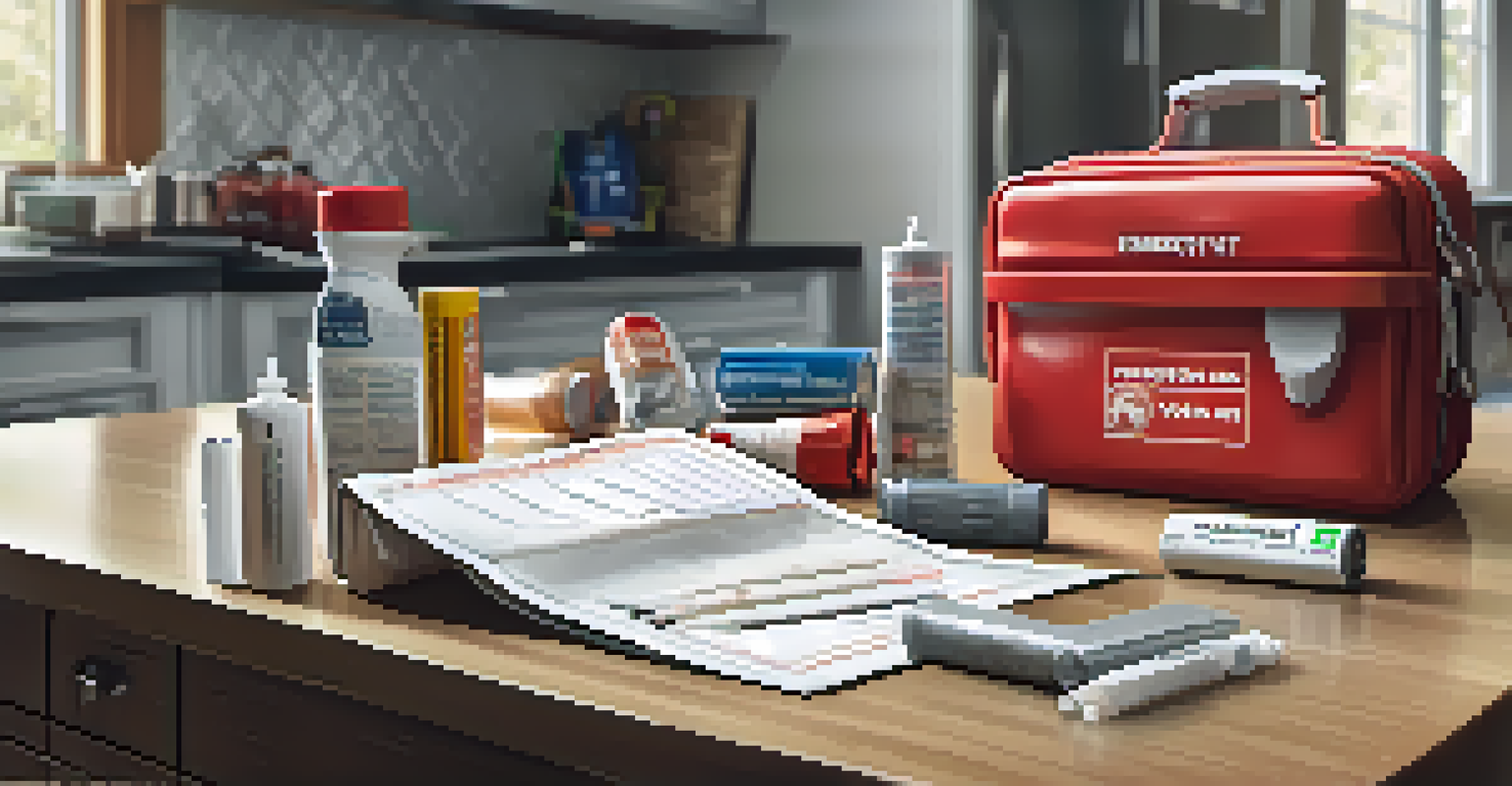The Ultimate Home Maintenance Checklist for Busy Families

Why Regular Home Maintenance is Crucial for Families
Maintaining your home is like keeping a car in top shape; neglecting it can lead to bigger issues down the line. For busy families, a well-maintained home ensures that everyone feels safe, comfortable, and happy. Regular maintenance also preserves the value of your property, which is a major investment for most families.
An ounce of prevention is worth a pound of cure.
When you stay on top of home maintenance, you prevent small problems from snowballing into costly repairs. Imagine a leaky faucet leading to water damage—what starts as a simple fix can turn into a major headache. By dedicating time for regular check-ups, you save money and reduce stress in the long run.
Moreover, a well-maintained home promotes a healthier living environment for your family. Regularly changing air filters, cleaning gutters, and checking smoke detectors helps ensure that your home is not just beautiful, but also safe and functional.
Creating a Seasonal Maintenance Schedule
A seasonal maintenance schedule helps families stay organized and proactive. Dividing tasks by season allows you to tackle them at manageable intervals throughout the year. For example, spring is perfect for garden work and summer for outdoor repairs, while fall focuses on prepping for winter.

Using a calendar can be a game-changer for busy families. Consider setting reminders for key tasks like checking your heating system before winter or cleaning out the garage in early spring. This way, everyone in the family knows what to expect and can pitch in.
Regular Maintenance Saves Money
Staying on top of home maintenance prevents small problems from escalating into costly repairs.
Additionally, involve the whole family in the process! Assign age-appropriate tasks to kids, fostering a sense of responsibility and teamwork. When everyone contributes, it not only lightens the load but also builds family bonds.
Essential Monthly Home Maintenance Tasks
Monthly maintenance tasks might seem minor, but they have significant long-term benefits. Simple actions like cleaning refrigerator coils, inspecting fire extinguishers, or checking for water leaks can prevent bigger issues. These tasks can typically be completed in just a few hours.
The time to repair the roof is when the sun is shining.
Consider creating a checklist for these monthly tasks to keep your family on track. Post it somewhere visible, like the fridge or a family calendar, to encourage participation. The more you make it a routine, the easier it will become.
Remember, consistency is key! By dedicating just a little time each month, you can keep your home in excellent shape and avoid overwhelming maintenance days down the line.
Seasonal Deep Cleaning: A Family Affair
Deep cleaning might feel daunting, especially for busy families. However, breaking it down into seasonal chunks makes it more manageable and even fun. Assign each family member a specific area or task to focus on, turning it into a team effort.
For instance, spring cleaning could involve decluttering rooms, washing windows, and deep-cleaning carpets. In the fall, you might focus on organizing storage spaces and prepping outdoor furniture for winter. This not only lightens the burden but also fosters a sense of achievement.
Seasonal Tasks Foster Family Teamwork
Creating a seasonal maintenance schedule encourages family involvement and responsibility in home upkeep.
Plus, it's a great opportunity for family bonding! Play some music, set a timer, and challenge each other to complete tasks in a fun and competitive way. The satisfaction of a clean home is a rewarding bonus!
Inspecting Major Systems of Your Home
Your home’s major systems—plumbing, electrical, and HVAC—are crucial for comfort and safety. Regular inspections help identify potential problems before they escalate. For example, checking your heating system before winter can ensure it operates efficiently when you need it most.
Consider hiring professionals for thorough inspections at least once a year. This might feel like an extra expense, but the peace of mind and long-term savings are well worth it. You can also learn some basic DIY checks to do in between professional visits.
Involving the family in understanding these systems can be beneficial. Teaching kids about the basics of home maintenance helps them appreciate the work that goes into maintaining a safe and comfortable living space.
Outdoor Maintenance: Keeping Your Curb Appeal High
Outdoor maintenance is just as important as indoor upkeep. Your yard is often the first impression guests have of your home, and regular maintenance boosts curb appeal. Simple tasks like mowing the lawn, trimming hedges, and cleaning gutters can greatly enhance your home's exterior.
Consider creating a seasonal outdoor checklist, similar to your indoor tasks. In the spring, focus on planting flowers; during the summer, keep up with lawn care; and in the fall, rake leaves and prepare for winter. Each season brings its own set of tasks, making it easier to stay organized.
Emergency Preparedness is Essential
Having a well-stocked emergency kit and a clear escape plan ensures your family's safety during crises.
Don’t forget to involve the kids in outdoor maintenance! Assign them fun tasks like planting flowers or raking leaves. This not only teaches them valuable skills but also encourages them to take pride in their home.
Emergency Preparedness: A Family Essential
Being prepared for emergencies is vital for any family. This includes having a well-stocked emergency kit, an escape plan, and understanding how to shut off utilities in case of an emergency. Regularly reviewing and updating these plans can make all the difference when a crisis hits.
Involve the entire family in creating your emergency plan. Discuss what to do in various situations, such as fire, flood, or severe weather. Practicing these scenarios ensures everyone knows their role, which can ease anxiety during an actual emergency.

Additionally, consider setting aside time each month to review your emergency supplies. Make sure items like flashlights, batteries, and first-aid kits are in good condition and stocked. Being prepared not only safeguards your family but also gives you peace of mind.